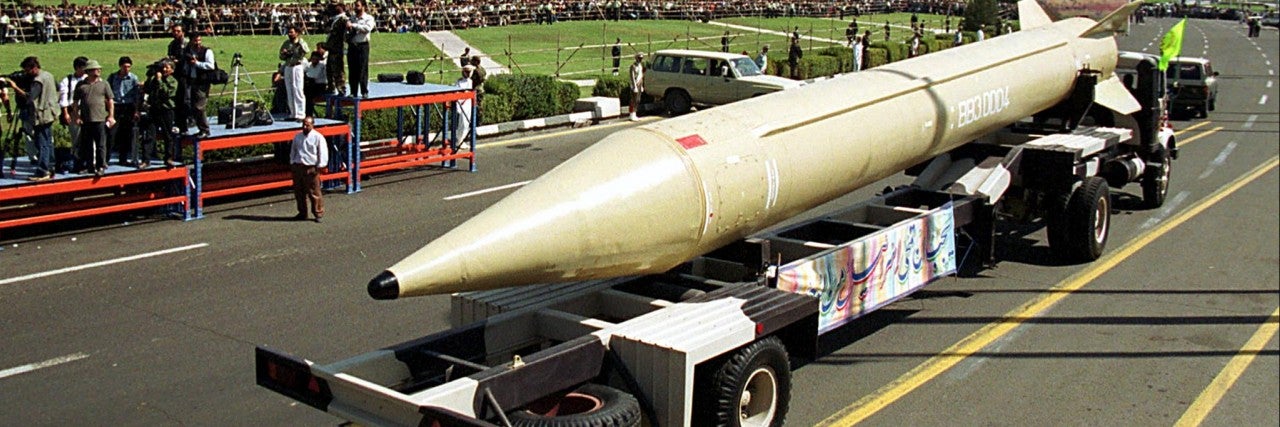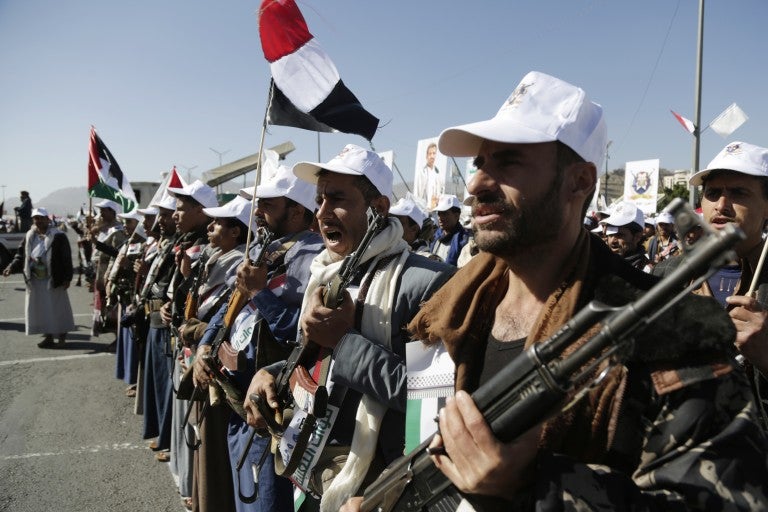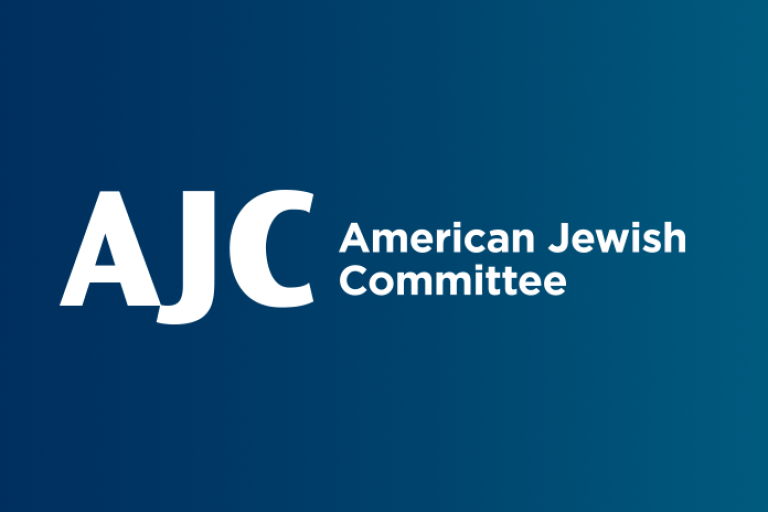April 19, 2021
In early April 2021, six world powers opened negotiations with Iran over the 2015 nuclear accord, or Joint Comprehensive Plan of Action (JCPOA), from which the U.S. withdrew in 2018.
Though Iran has refused to meet directly with the U.S. and all negotiations have been mediated by Europeans, officials described the initial discussions, focused on bringing Iran into compliance and lifting U.S. sanctions, as constructive.
If the product of the current talks is simply a return to the status quo of the inadequate 2015 nuclear deal, with U.S. sanctions lifted and Iran six years closer to the easing of restrictions on its nuclear program, American Jewish Committee would view such a trade as both a missed opportunity and a dangerous development.
The talks in Vienna offer the prospect of a better deal with binding, enduring restrictions on Iran’s production, stockpile, and use of enriched uranium, with unhindered international monitoring, as well as on its ballistic missile development and destabilizing regional behavior.
AJC’s policy on Iran is based on decades of study. Here are five reasons why AJC believes the U.S. should not settle for anything less than the better deal described above.
1. Iran is the world’s leading state sponsor of terrorism.
Some countries invest in humanitarian aid, agriculture, and public health. Iran invests in international terrorism. Of the four countries designated by the U.S. State Department as state sponsors of terrorism – Iran, Cuba, North Korea, and Syria – Iran spends the most on terrorist activity around the world.
According to an analysis by AJC and the International Counter-Terrorism Institute, the Islamic Republic of Iran pours as much as $700 million per year into its terrorist proxies, including Hezbollah, Hamas, Yemen’s Houthis, and Shiite militias in Iraq.
Iran’s investments in Hezbollah—both financial resources and weaponry—have increased over the years, enabling Hezbollah’s transformation into a hybrid terrorist organization that operates a welfare system and a political party alongside its military operations. Its tentacles of terror extend across the world, through countries that refuse to designate all of Hezbollah a terrorist organization, enabling recruitment and fundraising.
The U.S. State Department also considers Iran’s state militia, the Islamic Revolutionary Guards Corps (IRGC), a foreign terrorist organization (FTO), the first foreign state entity to earn that distinction. Formed during the Islamic Revolution in 1979, its special operations unit, the Quds Force, has helped establish proxy militias like Hezbollah in Iraq, Syria, and Lebanon.
2. Iran has flouted the 2015 nuclear deal.
Iran has flouted every aspect of the JCPOA, including limits on the quantity and intensity of uranium enrichment, the equipment employed in enrichment, and inspections of the nuclear fuel cycle.
On April 13, Iran notified the International Atomic Energy Agency (IAEA) that it would start enriching uranium to 60% concentration of U-235, the fissile isotope isolated to produce nuclear fuel and nuclear weapons. It was already exceeding the 3.67% limit set by the 2015 accord. Iran’s uranium stockpile of 2.4 tons also vastly exceeds the 202.8-kilogram (447 lb.) ceiling in the accord.
The deal also attempted to limit Iran’s installation of centrifuges at its Natanz research and development facility to the oldest and least efficient until 2026. But in November Iran began transferring advanced centrifuges to an underground facility.
In February, Iran announced it was pulling the plug on snap inspections by IAEA inspectors who have kept tabs on Iran's nuclear facilities, laboratories, and uranium mines. It also announced that it would block access to the security cameras that have enabled inspectors to monitor enrichment levels remotely.
3. Iran and China make dangerous bedfellows.
Iran and China both seek to increase their influence in the Middle East. Both also contravene Western values and norms. That makes the new 25-year pact between the two countries a cause for concern.
Per the agreement finalized last week, China is expected to invest $400 billion in Iranian industries such as banking, telecommunications, ports, railways, health care, and information technology in exchange for a steady flow of Iranian oil at a deep discount. The confidential pact also reportedly includes more military cooperation, including joint research and weapons development and intelligence-sharing.
China has taken Iran’s side in the tug of war between the U.S. and Iran, saying the U.S. must lift its unilateral sanctions before Iran makes any conciliatory moves.
4. Iran’s crimes against humanity extend to foreigners, neighbors, and its very own citizens.
The United Nations has appointed an independent investigator on Iran who documents the regime’s abysmal human rights record.
The list is long. Iran’s religious and ethnic minorities such as the Baha’is, and women’s rights advocates and those who defend them, including renowned lawyer Nasrin Sotoudeh, are subjected to harsh repression. Leaders and prominent community members critical of the regime have been arrested, denied due process, then imprisoned or executed.
Iran’s authorities have used lethal force in response to widespread protests, killing hundreds of its own citizens. After participating in a 2018 protest, Iranian champion wrestler Navid Afkari was arrested and charged with offenses including murder. Iranian authorities refused to investigate his claim that he confessed under torture and then secretly executed him in September 2020, leading AJC and others to call on the International Olympic Committee to ban Iran from the Olympics.
The Iranian regime has arbitrarily imprisoned many foreign and dual nationals – currently including four Americans – to use as leverage in negotiations with foreign governments, sentencing them to lengthy terms in prisons notorious for torture and inhumane conditions.
5. Iran responds to global economic and political pressure; future negotiations should thus maintain such pressure.
In the years leading up to the JCPOA, U.S. and global economic sanctions choked Iran’s economy by restricting international transactions and cutting crude oil exports by more than 50%. Iran had no choice but to negotiate a deal impeding its development of nuclear weapons but allowing the Islamic Republic to do business.
By agreeing to the terms of the JCPOA, Iran scored financial gains – some of which were likely diverted to support Tehran’s regional aggression, including its military assistance to the brutal Assad regime in Syria. Wisely, the U.S. never scaled back sanctions on direct trade with Iran tied to Iran’s support for regional armed factions, its efforts to acquire missile technology, and its human rights abuses.
In fact, the European Union recently joined the U.S. in imposing targeted sanctions on Iranian officials responsible for abuses for the first time since 2009.
President Biden has said he will lift sanctions that were imposed by President Trump after the 2018 U.S. withdrawal in exchange for Iran conforming to the nuclear deal. As the administration weighs which sanctions to lift to return Iran to full compliance, it must maintain sufficient tools not only to respond to the regime’s terror support and gross human rights violations but to provide powerful leverage for the “longer and stronger” deal the administration has pledged to pursue.


